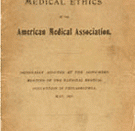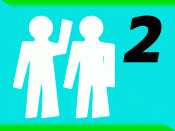James Lucas English 1D 4/1/02 Professor Powell cloning The Ethics of Cloning The ethics of human cloning is a topic that has troubled the people around the world for years. The proponents of each point of view have many logical reasons for cloning, or not cloning, human beings. This essay is an attempt to explore the pros and cons for cloning and provide enough information to the reader for he or she to establish their own informed decision about the ethics of human cloning. In order to accomplish this, several things must be discussed: the definition of cloning, how cloning was started, potential advantages and disadvantages of cloning, and detailed arguments for both sides of the issue. After thoroughly discussing these points, I will share my conclusion about the wisest position to take.
When talking about human cloning, different groups and agencies define the term cloning differently. To use an exact definition, the American Medical Association (AMA) defines cloning as: "the production of genetically identical organisms via somatic cell nuclear transfer.
Somatic cell nuclear transfer refers to the process which the nucleus of the somatic cell of an existing organism is transferred into an oocyte from which the nucleus has been removed." In other words, cloning is the method of producing a baby that has the same genes as it's parent. You take an egg, remove it's nucleus, and take the nucleus from an adult cell and insert it into the egg. With proper stimulation, this can become an embryo. Thus, when implanted into the women's uterus, it is supposed to develop into a baby. It is important to remember that not all of this is true, or even able to be proven at this point in time, but only a scientific hypothesis (McCormack).
Different organizations, however, may define cloning...


